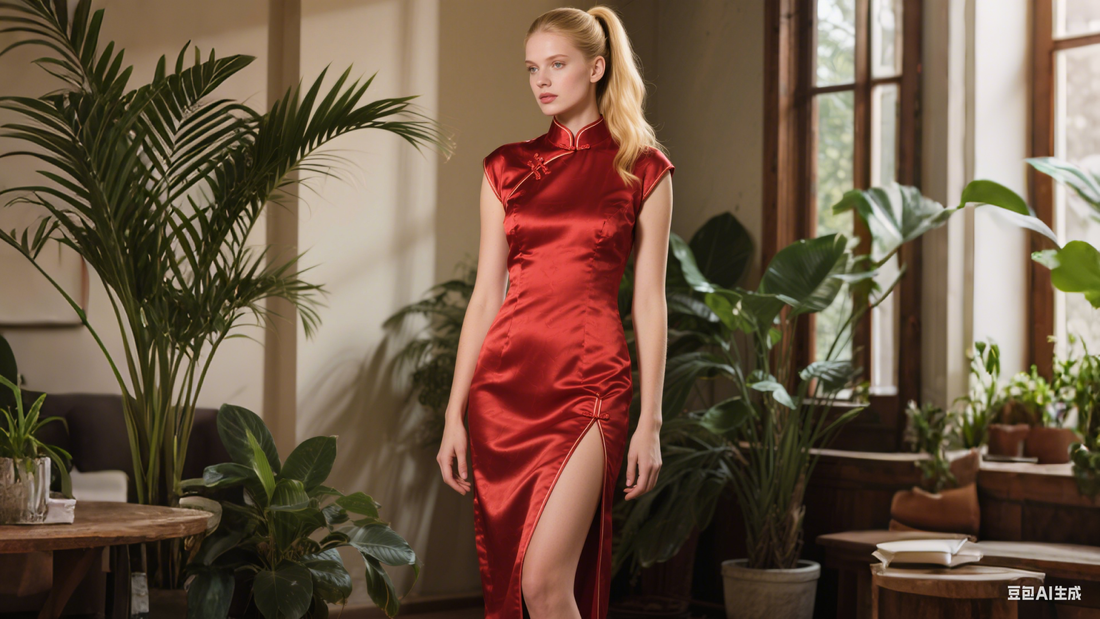1. Prioritize Fit & Silhouette
Tailoring is key: Opt for custom-fit or adjustable styles (e.g., A-line cuts) to complement your body shape. Avoid overly tight versions.
Neckline: Choose a moderate Mandarin collar (1-2cm height) to elongate the neck without discomfort.

2. Color & Fabric Choices
Fair/Cool Skin: Jewel tones (emerald, sapphire) or pastels (lavender, dusty rose).
Warm Skin: Rich shades (burgundy, terracotta) or ivory.
All Skin Tones: Classic Chinese red (symbolizes luck) or black silk.
Fabrics: Silk, velvet, or brocade—never cheap polyester.

3. Cultural Respect Essentials
Avoid: Dragon/Phoenix motifs (reserved for special ceremonies), high slits (mid-thigh max), and "geisha" styling.
Embrace: Subtle florals (peonies, chrysanthemums) or art deco patterns.
Buy Authentic: Support Chinese designers like Shanghai Tang or Qipao Project.
4. Styling & Accessories
Shoes: Nude pumps or strappy heels—never "qiao" platform shoes.
Jewelry: Pearls or jade bangles; avoid chopsticks in hair.
Hair: Soft waves or a low bun—not twin buns.

5. Occasion Matters
Wear to weddings, galas, or cultural events—never as a costume or joke.
"A qipao celebrates elegance, not exoticism. When worn with intention and respect, it honors its heritage."
— Designer Vivienne Tam
Example: Emma Watson’s black velvet qipao with 3/4 sleeves and pearl earrings (understated, sophisticated).
✅ Key Takeaway: Beauty lies in honoring the garment’s craftsmanship and cultural significance—not in "standing out.
More Question:
1 Qipao vs Cheongsam: Decoding the Distinctions?
2 Is it OK for a white person to wear a cheongsam?
3 Can Foreigners Wear Cheongsam or Qipao Dress?
4 How can a white person wear a cheongsam (qipao) beautifully and respectfully?
